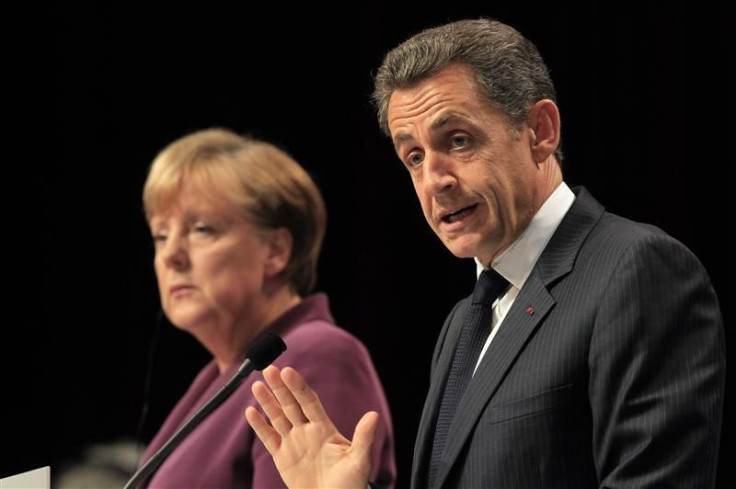France, Germany to Show Support for New Italian PM

(REUTERS)--The leaders of France and Germany will voice their support for new Italian Prime Minister Mario Monti at a tripartite meeting on Thursday, seeking to stem the risk of the debt crisis gripping the heart of the euro zone.
The talks hosted by French President Nicolas Sarkozy in the eastern city of Strasbourg are due to discuss the reforms planned by former EU commissioner Monti to restore confidence in the euro zone's third largest economy, as well as the bloc's overall strategy for dealing with the crisis.
France wishes to provide its support to Mario Monti's policy of reforms and financial adjustment, French government spokeswoman Valerie Pecresse said on Wednesday about the meeting. It's an occasion to reinforce the economic convergence and cooperation between three great states of the euro zone.
France and Germany, however, remain divided on how best to cope with the spiraling debt crisis. While France has backed German demands for EU treaty changes to enshrine tougher fiscal rules, Berlin remains fiercely opposed to Paris' appeals for the ECB to act as the single currency's lender of last resort.
Adding to investors' anxiety, Europe has yet to come up with a detailed plan for beefing up its EFSF rescue fund.
The specter of contagion moved a step closer to the euro zone's core on Wednesday when nervous investors shunned a German bond auction, sending the euro lower against the dollar and fuelling fears the region's economic powerhouse could lose its safehaven status.
Climbing debt yields and the threat of looming recession have already called France's AAA status into question, with credit ratings agency Fitch warning on Wednesday that Sarkozy's government had little budgetary room to absorb any fresh shocks.
END OF BERLUSCONI ERA
Thursday's meeting is set to turn the page on the era of scandal-plagued former Italian prime minister Silvio Berlusconi, who resigned this month after it became clear European partners had lost faith in his promises of reform.
A wry smile exchanged between Sarkozy and Merkel at a EU summit in October, when asked about Berlusconi's promises of reforms, was taken as a sign they were running out of patience with the media tycoon's gaffe-prone leadership. The Franco-German axis was instrumental in prompting Berlusconi to accept IMF tutelage over Italy's finances at a G20 meeting this month.
Monti, appointed at the head of a technocratic government last week tasked with pushing through painful reforms, received firm backing from top EU officials in Brussels on Tuesday -- though he offered no new details on his agenda.
Fabrizio Saccomanni, deputy head of the Bank of Italy, said Monti's appointment offered a chance for Italy to play a constructive role in Europe again, after years in which showmanship had made the Italian government less effective.
It was a pity that during a certain number of years Italy no longer had the possibility to participate at this level in these debates, he said, asked about Thursday's meeting.
Italy's European partners have urged reforms such as raising the effective pension age, loosening job protection measures and new taxes to pare back a debt of 1.9 trillion euros -- equivalent to some 120 percent of GDP.
The European Central Bank has made Italy's reforms a condition for its bond purchase program, which has helped to restrain interest rates from escalating to untenable levels.
Sarkozy, who has staked his reputation on retaining France's AAA rating ahead of a tough reelection battle next year, on Tuesday embraced a German campaign for treaty change that would give European authorities intrusive powers to intervene in the budgets of euro zone countries.
In return, France may be hoping Berlin will ease its staunch opposition to the ECB stepping up its bond purchases.
(Reporting By Daniel Flynn; Editing by Myra MacDonald)
© Copyright Thomson Reuters 2024. All rights reserved.











